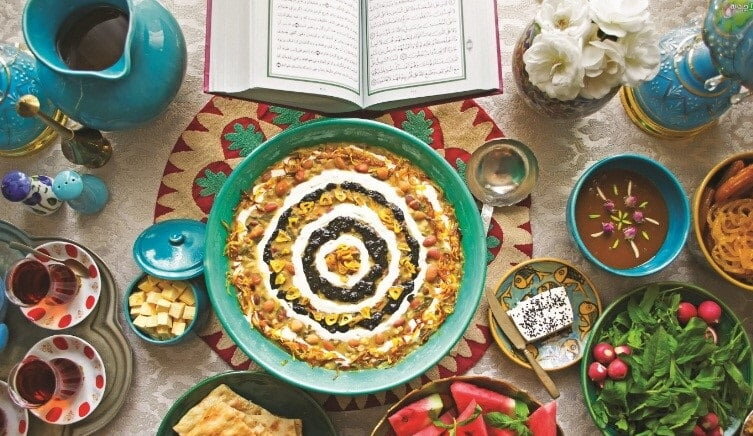Fight against pandemic by healthy diet during Ramadan

TEHRAN – As the coronavirus pandemic is putting the world through a hard time, following a proper diet during the holy month of Ramadan is very important to provide immunity, energy, and nourishment and prevent health problems.
Muslims observe religious fast from dawn (fajr) to sunset (maghrib) and pray more than usual and with even more intensity to get closer to God. Ramadan is traditionally a time of great hospitality and generosity to needy people.
At the end of the fasting day, Muslims break their day-long fast with an “iftar” meal. In Ramadan, people rise early before dawn to have a pre-fast breakfast, called “Sahari” in Persian. The meal is usually light and normally consists of previously prepared foods.
Adherence to proper nutrition has an important effect on strengthening the body’s immune system to fight infections, especially COVID-19, so essential food groups, including grains, vegetables and fruits, legumes, nuts, dairy or alternatives, and protein sources, improve the function of the body’s immune system.
Hunger can weaken the immune system and not having a healthy diet at Sahari and Iftar meals or omitting one of the meals, especially the morning one, possibly increases the incidence of coronavirus. Hunger can weaken the immune system and not having a healthy diet at Sahari and Iftar meals or omitting one of the meals, especially the morning one, possibly increases the incidence of coronavirus, Zahra Abdollahi, director of the community nutrition improvement office of the Ministry of Health said, Mehr reported.
Numerous studies have shown the effective role of fasting in health, especially on blood glucose levels, blood lipids, and blood pressure, weight control, and recovery from various diseases. Fasting is beneficial in most diseases that are associated with poor eating habits, obesity, and overweight, she explained.
Highlighting that popper fasting and following a healthy diet is effective in strengthening the immune system, she noted that due to the vital role of vitamin A in strengthening the immune system, it is recommended to a variety of vegetables, yellow and orange fruits such as carrots, squash, bananas and citrus fruits, as well as yolk, milk, and dairy.
Try to consume food sources of vitamin D such as fatty fish, dairy products, and yolk to increase the level of immunity, she added.
To provide vitamin E as an antioxidant to help the immune system, you can use oils such as canola, sunflower, and corn in cooking; also, vegetables such as spinach, kale, soy, and potatoes or nuts such as hazelnuts, almonds, walnuts, she said, adding, consume foods rich in vitamin C, including a variety of fruits and vegetables, such as cabbage, tomatoes, lemons, oranges, tangerines, and kiwis.
To prevent the rapid progression of viral infections and provide vitamin B12, consume sources of animal protein, including meat, fish and poultry, eggs, and dairy products, she recommended.
One can also consider having coconut water and fruity drinks which are super-hydrating. Fluids are very important for the health and vitality of the body during the fasting period and it is important to drink plenty of water, in addition to other refreshing drinks, she explained.
The foods that should be avoided in Ramadan are deep-fried foods, high in sugar, and high-fat foods including sweets.
As the pandemic continues to sweep its way across the world, iftar gatherings and family get-togethers are discouraging people from meeting each other and are also promoting social distancing. Ramadan is a beautiful opportunity to practice good habits which stay with you even after the holy month ends and during the epidemic.
FB/MG
